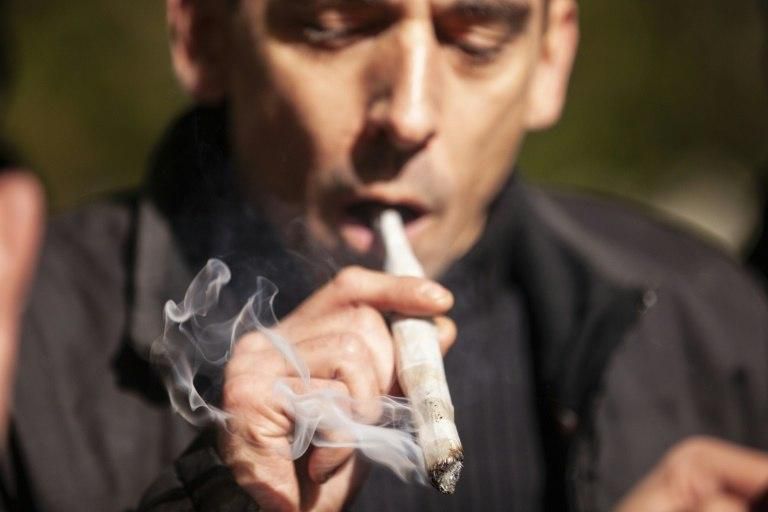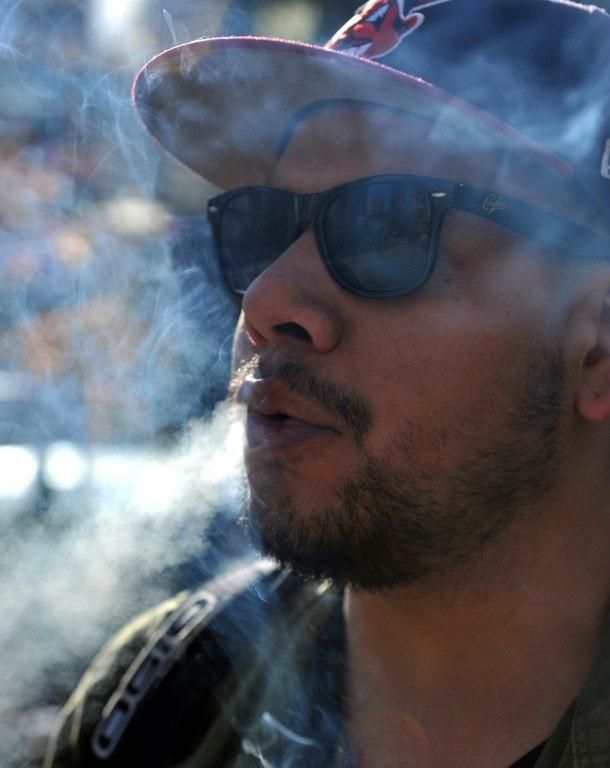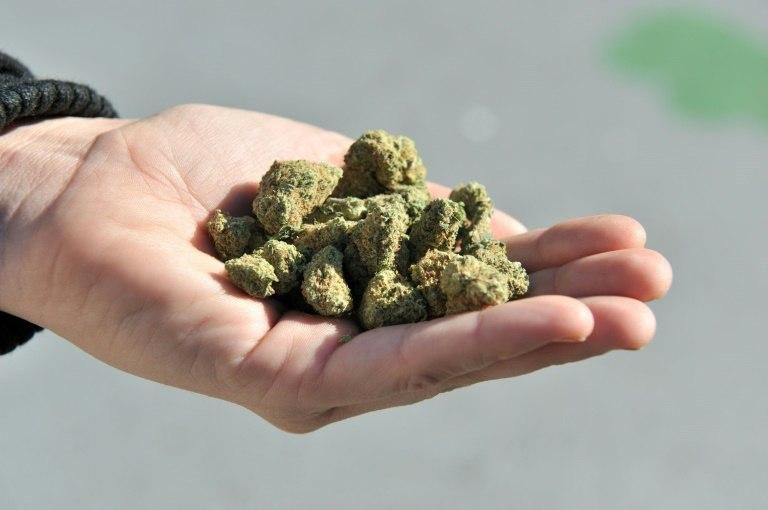Canada legalizes marijuana for recreational use
)
Scores of customers braved the cold for hours outside Tweed, a pot boutique in St John's, Newfoundland that opened at midnight, to buy their first grams of legal cannabis.
Ian Power lined up outside the store four hours prior to its grand opening, happy to "make history" by being the first to legally buy pot in Canada.
"I'm elated. I'm so excited, I can't stop smiling. I'm not cold. It's freezing cold out, but I'm not cold," he said.
In Cape Breton, platinum record-selling fiddler Ashley MacIsaac was among the first buyers, while in Toronto revellers attended a "Wake and Bake" party with music, a glass pipe blower and campfire treats.

In Montreal, they brought lawn chairs to lineups and burst into applause when fellow patron Sebastien Bouzats called it "an unprecedented day in the G7."
"It's fun, good for the soul, and now legal so we don't have to stress about that anymore," Bouzats told AFP. "We don't have to hide it anymore."
Legalization has sent stocks in pot companies soaring on the Toronto and New York stock exchanges, but has also been sharply questioned by some health professionals and opposition politicians.
Prime Minister Justin Trudeau has defended legalization -- the fulfillment of a 2015 campaign promise -- as intended to protect young people and to shut down drug dealers.
"I don't drink coffee, I have no intention of using marijuana," Trudeau, who has admitted to smoking pot in the past, said Wednesday.
The entry into force of the Cannabis Act makes Canada only the second nation after Uruguay to legalize the drug.
How well it goes could have an impact on Canada's next election in 2019, and on whether other countries follow in its footsteps.

In total, Statistics Canada says 5.4 million Canadians will buy cannabis from legal dispensaries in 2018 -- about 15 percent of the population. Around 4.9 million already smoke.
Public Safety Minister Ralph Goodale announced a plan to pardon past convictions for simple possession, giving people "greater access to job opportunities, education and housing."
A new industry is born
Under the new regulations, Canadians at least 18 or 19 years old (soon to be 21 in Quebec) will be allowed to buy up to 30 grams of cannabis, and grow up to four plants at home.
A patchwork of private and public cannabis retail stores and online sales have been set up across the 13 provinces and territories, ramping up to 300 storefronts by year's end, the government predicts.

Sales of derivatives like edibles will be legalized next year.
To meet demand, hundreds of growers have been licensed, some taking over horticulture and floriculture greenhouses.
The new industry has attracted billions in funding, as well as interest from major alcohol and soft drink makers such as Constellation Brands and Coca-Cola, respectively, in developing cannabis infused drinks.
Cannabis sales are forecast to boost economic growth by up to Can$1.1 billion and provide a Can$400 million tax windfall for the government, according to Statistics Canada.
It's still unclear if legalization will undercut the black market. Prices for illicit pot have plunged to an average of Can$6.79 per gram, and most legal sellers are charging more.
Bill Blair, a former Toronto police chief who is Trudeau's pointman for pot legalization, remains optimistic.
He acknowledged that criminal enterprises that have long controlled the market for pot and have reaped billions in profits a year "are not going to go gently into the night."
jpegMpeg4-1280x720"But the fact that some individuals want to cling to a prohibition model that has led to the highest rates of cannabis use of any country in the world is a little shocking to me," he told AFP.
Goodale noted that Can$2-3 billion was spent annually to police cannabis and consumption still rose.
According to a recent Abacus Data poll published on Monday, 70 percent of Canadians accept or support legalization.
Public health officials contend that smoking cannabis is as harmful as tobacco, but welcome what they call the opportunity that legalization affords for open dialogue.
Some doctors, however, remain wary. Diane Kelsall, editor in chief of the Canadian Medical Association Journal, called legalization "a national, uncontrolled experiment in which the profits of cannabis producers and tax revenues are squarely pitched against the health of Canadians."

)
)
)
)
)
)